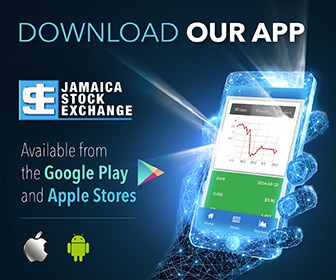REGIONAL AND GLOBAL CONNECTIVITY THROUGH TECHNOLOGY
‘Destination – Integration’
It is indeed a pleasure to participate in this panel discussion on ‘Regional and Global Connectivity through Technology’. I am truly satisfied today as I believe a lot has been achieved over the last two years. Strides have been made globally and there is now a greater appreciation of regional and global connectivity for the growth of especially in small markets such as ours.
Our contemplation of regional connectivity could not have taken place at a better time given the rapid pace in technological innovations through information and communication technology and the profound impact this can have on our region.
While we are confident that our move towards regional connectivity will form the basis for global competitive advantage, our willingness to move quickly and embrace the change has dogged the process. I must confess that I am a little disappointed and perhaps impatient with our region’s slow pace in adjusting to the external technological developments that can only redound to the benefit of our markets and people.
In contrast, just recently Digicel, a giant cellular service provider, stated much to my astonishment, that it took the company two months after its initial discussion on entering Haiti’s market for mobile telephones. Today they service some 2.5 million customers there! I applaud them for their shrewdness and alacrity as that is what progress is made of.
Whether it is in government or the private sector, sometimes the guard must change to make way for progress. Guards can be viewed as the mind set to effect change, the persons ready to embrace change or our fear of the unknown. Too often the road blocks that are mounted and the obstacles created are borne out of over-analysis, over-protection or the lack of understanding. Within our region all is evident.
Market Efficiencies
About three years ago we informed the region’s markets that efficiencies could be realized through our regional integration and that Jamaica was committed to having this expeditiously done.
I am not thrilled to say to you that we have not yet arrived at our ‘Destination – Integration’. I was encouraged to take it off the agenda as other thoughts it was an embarrassment. I disagree!
The last time we met, we told you that that we had examined the Nordic Baltic market and determined that this was a model which could be adapted to our needs. The framework has been developed and we believe that when approved, it is this that will provide improved technological and market efficiencies. The use of this model, to bring together regional markets, recognizes that market transcends office buildings and individual brokers as well as Exchange administrations but lies in technological co-operation.
This will result in increased liquidity and the reduction in transaction costs to a wide range of stakeholders. These and more are the advantages Norex Alliance boasts today eight years after its implementation.
A study by McKinney & Co for OMX shows that trade volumes and market liquidity are higher in more efficient markets. The study also shows that “there is a clear correlation between the size of transactions, the unit cost and velocity of the market.”
Why Continue to Lobby?
Growth Strategy
An examination of what obtains in other parts of the world reveals that the model of integration by technology improves external perception of a region’s size and float. Most markets now recognize this model to be the growth strategy model of the 21st Century.
As part of its global network strategy, Inter Continental Exchange (NYSE: ICE) the leading electronic energy market place announced its second telecommunication hub with the launch of its Chicago hub. Ice’s President and Chief Operating Officer, Chuck Vice stated that ‘to continue to grow our market we are taking an aggressive approach to technology enhancements and expanded connectivity options to meet the needs of participants around the globe.’
Our region must put itself in a position to provide credibly choices to investors and other market players: connectivity provides these possibilities. If we can get the first phase of a two phase plan implemented then the move to the second phase will provide great opportunities for market connectivity with not only the Caribbean but the world. This connectivity will, accelerate customer access time to regional and international markets, lead to greater capital formation, price discovery and risk transfers just to name a few of the benefits and possibilities.
Regional Integration
As a region, this move pushes us to synchronize our rules and processes and procedure. This is important when players in the international capital market contemplate their investments in our market(s). On the one hand, country by country our markets are not attractive to the external players. On the other, exploits into their markets can be costly for any one Exchange.(this sentence could be re-worded for clarity) However, with the use of common technology, utilizing the same platform and other means of connectivity members allied can be a force to be reckoned with. As the three Exchanges (Trinidad, Barbados & Jamaica) can so far can attest, have been able to share costs thereby reducing the overall burden on one Exchange.
While we move towards full implementation there will be cost-sharing cost associated
with the hubs, legal fees, system maintenance and research and development. Other advantages gained will be in the area of knowledge transfer and the development of a pool of expertise in the region. On the investors’ side, when we would have completed our interconnectivity, the pool of potential investors will increase and the access to numerous Exchange will also create more market liquidity. We also expect that products not now offered by one Exchange or another will become available through connectivity. The regional alliance or ‘destination integration’ will be a win-win situation for all.
Embracing the Competition
Small Exchanges in most parts of the world do not make operating profits therefore cannot compete outside of their space and they are not on the radar of large global capital markets.
Before the Norex Alliance this would be the sentiments expressed by the various Nordic Baltic Exchanges. Today, based on the roadmap for the development of their alliance they are on the map. We expect with our alliance that this can also be achieved. We will provide to markets across the world, through our regional web portal and other technological tools and alliances, timely information on our region so that international capital market players will be forced to look beyond their current market into ours for possible investment opportunities. As comparatively small Exchanges we need to find ways to compete and create revenue.
How do we get to our Destination – Integration?
1. First we need our own Exchanges and their stakeholders to be fully committed to the vision and seize the moment. Quite recently someone said to me of himself, ‘I do not think outside of the box.’ I was puzzled as I considered him a change agent. He then said ‘for me there is no box’. If we operate in that vein it is my belief that our long awaited vision can be realized as we turn challenges into opportunities.
2. Our regulators, who have worked with us in the past, need also to be fully on board. Convinced that what we are creating now are just small steps within a larger journey and that perfect regulation cannot be achieved at the beginning of the journey but that we are committed to working with them to smooth out the kinks.
3. Research has shown that the technological model pursued must be accomplished in stages to reduce project risks. This is the road our Exchanges are taking. The interconnectivity with the three first Exchanges in the alliance utilizes common trading and settlement platforms and the use of a common and innovative bank for funds settlement.
We now face the problem of working together in a disciplined way within agreed time-frames and priorities. Further as Caribbean people, our history has shown that personalities drive the process rather than the other way around. We have seen that there more exists a commitment to person(s) and personalities rather than concepts and what is right for us as a region. Given this knowledge about us, implementation must therefore be swift, as buy in can be lost with the change of a government or a manager.
In our case we hope that there has been a real buy-in to the strategy to advance our markets through REGIONAL & GLOBAL CONNECTIVITY THROUGH TECHNOLOGY and allow us to reach our destination integration.





